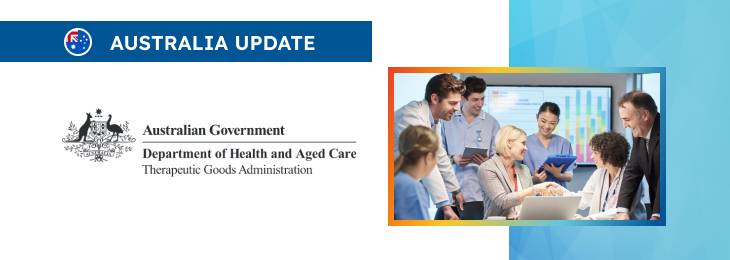The article outlines the roles and responsibilities of the parties involved in recalls and related activities to be taken to ensure the safety and proper performance of medical devices and other healthcare products allowed for marketing and use in the country.

Table of content
The Therapeutic Goods Administration (TGA), an Australian regulating authority in healthcare products, has published a guidance document dedicated to uniform recall procedures for therapeutic goods (URPTG).
The document describes the relevant procedures in detail and provides additional clarifications and recommendations the parties involved should follow to ensure compliance with the existing legal framework.
The authority also reserves the right to change the guidance and provision thereof, should such changes be reasonably necessary to reflect corresponding amendments to the underlying legislation.
According to the guidance, recall activities require the proper cooperation of all the parties involved, ensuring they take all the necessary steps to notify potential users and remove affected products from the market
To assist with interpreting the existing legislation and following the requirements set forth therein, the authority provides an overview of the responsibilities of the key stakeholders participating in a recall process.
Sponsors
First, the authority mentions that sponsors are primarily responsible for conducting recall actions, although they may delegate specific tasks.
By the relevant regulatory requirements, they must have a written recall procedure detailing immediate actions, communication strategies, and organisational roles.
Sponsors are also responsible for maintaining accurate and current contact details for relevant parties and for effectively documenting and managing the recall process.

Manufacturers
As further explained in the document, product manufacturers must recall goods that do not meet safety and quality standards.
They must also document investigations into manufacturing issues, conduct root-cause analyses, and implement corrective and preventative actions (CAPAs).
Wholesalers and Distributors
According to the guidance, wholesalers and distributors play a key role in the recall process by ensuring effective distribution and return of recalled goods. They should also have procedures for conducting recalls, managing stock, and coordinating with sponsors.
Exporters
It is further stated that exports must include export customers in recall communications and notify overseas recipients and the Australian Government Minister for Consumer Safety in the case of safety-related recalls.
Consumers
As the authority mentions it, consumers do not have specific obligations. They may learn about recalls through various channels and should contact the sponsor or their health professional for specific advice.
Authorities
The document also outlines the scope of responsibility of the regulatory bodies involved in operations with healthcare products. In particular, TGA plays a central role in overseeing the recall process, from assessing the risks posed by the goods to agreeing on the recall action and communication strategy.
It is also responsible for maintaining public databases on recalls and issuing alerts as necessary.
State and Territory Recall Coordinators maintain an alert system for providing recall information within their jurisdictions and assist sponsors in implementing the recall strategy. ACCC (an Australian consumer protection authority) is involved when therapeutic goods are also classified as consumer goods, requiring notification within two days of initiating a recall action.
It also acts as the lead regulator for issues related to non-compliance with safety standards or bans under Australian Consumer Law.
Key Processes and Communication
Apart from the above, the document also highlights other key points to be considered when initiating and conducting a recall in terms of communication among all the parties involved in the process.
- The recall process necessitates clear and timely communication with all stakeholders, ensuring everyone understands their roles and responsibilities.
- Sponsors must keep detailed records of distribution to facilitate the recall of any batch of goods and are responsible for analyzing risks associated with medicines.
- Effective communication strategies, internally within organizations and externally with other stakeholders, are crucial for managing recalls efficiently and minimizing risks to public health.
Conclusion
The efficient recall process requires proper cooperation among all the stakeholders, performed by the respective written procedures and in line with the relevant regulatory requirements. The most important factors include the timely exchange of information and taking action without undue delay.
How Can RegDesk Help?
RegDesk is an AI-powered Regulatory Information Management System (RIMS) designed to simplify global compliance for medical device companies. With regulatory intelligence covering 120+ markets, RegDesk helps you prepare and publish global submissions, manage standards, conduct impact assessments, and stay ahead of regulatory changes all from a single, centralized platform. Expanding into new markets has never been easier.

